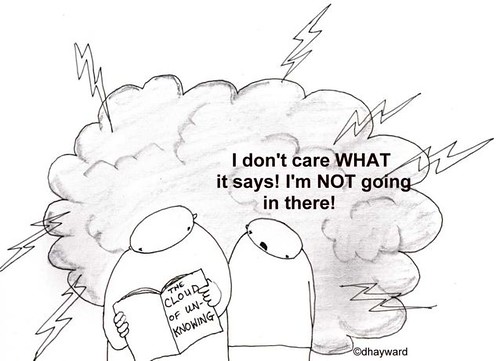 In this post I want to return to the figure of Father Christmas and to ask whether our idolatry matters.
In this post I want to return to the figure of Father Christmas and to ask whether our idolatry matters.
Who believes in Father Christmas?
Father Christmas is the god of consumerism. This god is deeply rooted in Christian and pagan imagery. Although it cut loose a long time ago, it still retains those associations, especially in the image of Santa Claus.
Not all people who believe in consumerism are obvious worshipers of this god. People from non-Christian religious traditions, who don't celebrate Christmas, are probably not influenced so much. Consumerism is an ideology which presumably influences a far wider group of people than Western Americans and Europeans. However, this is the culture that has generated both consumerism and the image of Father Christmas and at some level image and practice reinforce each other.
My guess is the United States and UK are the most excessive users of the Father Christmas cult. Other countries in Europe seem to be less excessive in their observance perhaps because in some countries traditional observances have withstood the consumerist onslaught better than Britain and America.
It is perhaps not too surprising that the last two states to be world powers, now in decline, feel the strongest need to have an annual season of excess.
What drives the cult?
I have already pointed out it is the market. A bad Christmas (by which they mean the weeks leading up to Christmas) can be very damaging for retailers and the economy. When did we last have a bad Christmas?
Very early on, we are told prospects are gloomy. Then, as Christmas approaches, at some point everything turns around. At some point the magic of Father Christmas kicks in and everyone realises that (a) we might as well go into debt to have a good Christmas, and (b) if we don't get out there soon everything will be gone from the shops.
So, the economy gets an annual jump start and people are encouraged to continue spending whether or not they have money to spend for another year.
As I write, the Copenhagen climate change talks are happening. Where is the leadership? I have never known any time when there has been a political will to reduce sales. The idea we might have to reduce our consumption and make do with less is unthinkable.
It is a disaster that this summit took place during the Christmas season. There is no way the interests in consumerism are likely to loosen their grip on the world's resources at the best of times. To choose the time of year when their spirituality is celebrated and strongest is a bad omen.
It seems we have created a world for ourselves we cannot escape from. It is impossible to imagine a world with shortages. (With the exception of course of much of the past and most of what we call the developing world.)
The waste, the pollution, the exploitation of the planet are all consequences of our inability to stop consuming. We bolster this with whimsical stories and false bonhomie. The problem is we do not know how to stop.












Recent Comments